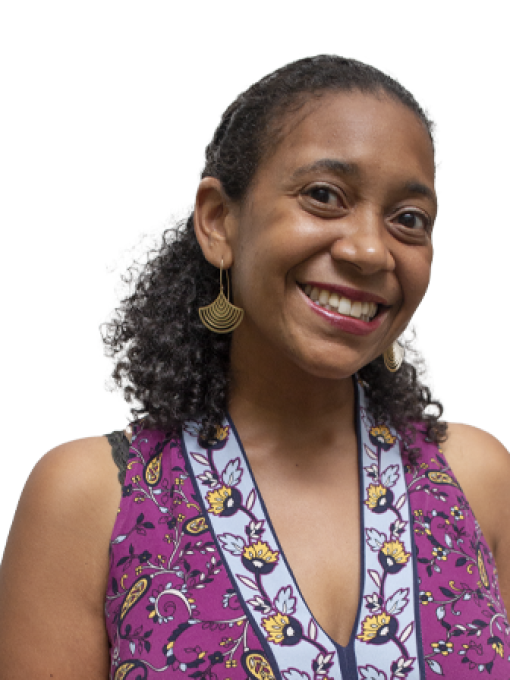FCNL is a force for peace and justice. Our power comes from uplifting our prophetic mission and living into the world we seek. We must ask ourselves how Congress fits into our vision.
Seeking an answer to that question, FCNL General Secretary Bridget Moix joined Sarah Freeman-Woolpert and me at the One America Movement Conference in Atlanta, GA, last month. The conference brought faith leaders together across traditions to consider how people of faith can help de-escalate the toxic polarization that too often defines political engagement.
The conference brought faith leaders together across traditions to consider how people of faith can help de-escalate the toxic polarization that too often defines political engagement.
The event was both informative and inspiring. We met leaders from across the country who are using their voices to speak up on behalf of our democracy—Somali Imams from Michigan, Baptist ministers from Mississippi, rabbis from Maryland, and leaders from faith-rooted advocacy groups in Washington, D.C. We heard stories of their courage and leadership with their communities.
FCNL’s Role in Supporting Peace, Justice, and Democracy
It became clear that FCNL is uniquely positioned to help address toxic polarization. Through our approach to lobbying, we model integrity and practice relational, collaborative political engagement. Through our words and actions, we demonstrate our values and show Members of Congress and our neighbors that a different way of engaging with our political system is both needed and possible.
By letting the Quaker testimonies guide our words and actions for peace, justice, equity, and stewardship, we believe FCNL can operate from a truly nonpartisan foundation and support Congress in considering legislation from a place deeper than party politics. As we work to support a just and resilient democracy, we are considering how FCNL can act as a transformative force, perhaps even influencing how members of Congress engage with one another and with the policymaking process.
Seeking a Third Way to Resolve Conflict
Quaker process provides one model for staying engaged and curious in a conflict and listening for the light in each perspective.
When the FCNL network uses aspects of Quaker decision-making processes, such as listening for understanding, honoring the measure of truth that each person brings to discernment, and committing to hearing from a range of perspectives, we are practicing the skills required for a more peaceful and just approach to resolving conflict.
At the One America Movement conference, we heard from speakers on a Millennial Action Project panel that compromise is often considered a loss for everyone because both sides are giving something up. They shared the importance of hearing, honoring, and understanding minority perspectives to move beyond polarization.
Friends’ commitment to seeking a third way when conflict emerges through discernment and deep listening offers another approach.
The One America Movement conference confirmed that FCNL’s staff and network have all the right tools in our toolbox to confront toxic polarization and advance a more just and resilient democracy.
New York Times columnist David French emphasized that ends and means are important in resolving conflict. That, too, is reflected in Friends’ belief that peace is the way. As a nonpartisan organization, FCNL and its network can help hold the tensions that emerge as we partner with Congress to build the world we seek.
Relationship Building is Essential
A clear theme emerged from the One America Movement conference—one we see reflected in our own work: That relationship building is essential to addressing the deep divisions and dangerous polarization in our country.
If we are to de-escalate polarization, we must focus on connection before content, understand that politicians are people, and appreciate that we can all learn from each other. All these themes are mirrored in FCNL’s lobby training.
Social Psychologist Kurt Gray shared research that supports another foundational principle of FCNL’s lobbying—the power of narratives. Gray shared the impact of creating opportunities for people to hear and tell their stories and connect beyond differences. Journalist and author Amanda Ripley discussed how important it is to feel a sense of community as we engage in bridging divides—another central element of FCNL’s organizing approach.
The One America Movement conference confirmed that FCNL’s staff and network have all the right tools in our toolbox to confront toxic polarization and advance a more just and resilient democracy. Our Quaker principles and steady presence empower us to preview the World We Seek for those we encounter. Our integrity in the face of conflict demonstrates to those who have lost sight of any other way that “a society with equity and justice for all” is possible.


